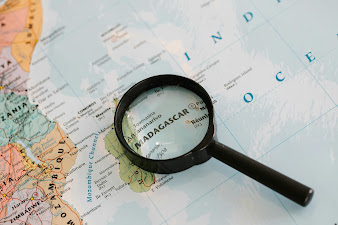• Madagascar is the world's fourth largest island, yet it is no less beautiful or biodiverse in this land of natural riches. Located southeast of Africa, this hunk of land is often referred to as the "Eighth Continent," given its peculiar ecosystems. This island became one of a kind distinctively for wildlife and culture due to its separation from the African mainland millions of years ago, thus becoming a haven for tenacious adventurers and nature lovers alike.
A Biodiversity Hotspot
The island is, therefore, home to some of the most diverse ecosystems globally, with some species being found nowhere else on Earth. Over 90 percent of its wildlife is endemic to this particular island. The most renowned of that wildlife includes lemurs, of which over 100 species are currently recognized, many having peculiar features and habitats. These range from the acrobatic sifakas to the eminent aye-aye, the nocturnal species which in itself is a showcase of Madagascar's uniqueness.
Other extraordinary fauna include the chameleons, with Madagascar being home to more than half of the world's chameleon population, and the spectacular tomato frog, renowned for the color bright red. The flora of the island is in equal parts astonishing, and it flaunts the iconic baobab trees, with a rich variety of more than 12,000 other species including the rare traveler’s palm that is native to Madagascar.
These vary, nay, immensely vary from each other.
Madagascar boasts the most varied landscapes to go with its unique wildlife and includes humid tropical rainforests through deserts, savanna, and stunning beaches.
• Tsingy de Bemaraha National Park: An UNESCO World Heritage Site, it features dramatic limestone formations called Tsingy, resembling a forest of stone spikes.
• Avenue of the Baobabs: Frequently photographed in Madagascar, this stretch of soaring baobab trees creates a surreal and magical feeling, especially at sunrise and sunset-time.
• Nosy Be: This is indeed a tropical paradise; this little island, situated on the northwestern coast of Madagascar, has dazzling white sandy beaches, tropical turquoise waters, pulsating coral reefs, and is immensely popular with snorkelers and divers alike.
Cultural Diversity
Not only is Madagascar a land of natural wonders, but a veritable cultural melting pot. The Malagasy people are therefore an amalgam of African, Asian, and European influences. Through its languages, traditions, and food, learned tensions of settlers from Southeast Asia and Africa, along with the Arab traders and European colonizers, lend immense activity when it comes to the island's history.
Generously present banghed cultural history represents life in permanent correlation with the world around it: the respected dead and/or nature. The vibrance of the Malagasy Heritage finds expressiveness through festivals, music, and dance; for instance, encounters with peculiar cultural practices such as Famadihina, or turning of the bones.
Environmental Issues
In spite of the stunning sweep of biological diversity and cultural diversity, Madagascar has to deal with adversity on a mammoth scale. The different habitat types and wildlife of Madagascar are under threat because of unregulated deforestation as a result of agriculture, logging and mining. Having lost approximately 80% of its forests, Madagascar is currently at risk of extinction for its lemurs. Climate change only aggravates the pressure on such issues, bringing side effects to both environment and people.
The Nature Conservation and Ecotourism
The conservation organizations, together with local initiatives, are working in tandem to secure the ecosystems of this island as initiatives to save Madagascar's natural heritage. Given that ecotourism provides revenue for local communities and raised awareness about protecting the island, it is of great importance. Visitors must patronize local businesses, use the national parks, and support the fauna conservation project.
Madagascar: Reasons to Go
With a blend of adventure and beauty as well as culture, Madagascar is one an experience one never would wish to forget. This is one not to miss-walking through rainforests, watching lemurs in their native habitats, diving in perfectly clear waters, and/or learning about the island's rich culture. Madagascar leaves an unforgettable memory behind for anybody who visited the island for fun, adventure, and also culture.
Conclusion
Madagascar truely represents a mysterious world in itself which is teeming with life and traditions waiting to unfold. One of the rarest and neatest places in the world inspires appreciation for the wonders of evolution, richness in cultural divergence and the need to conserve our natural heritage for our successors.







0 Comments